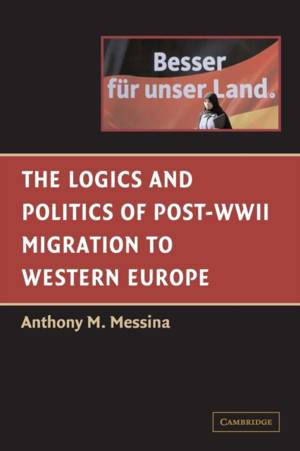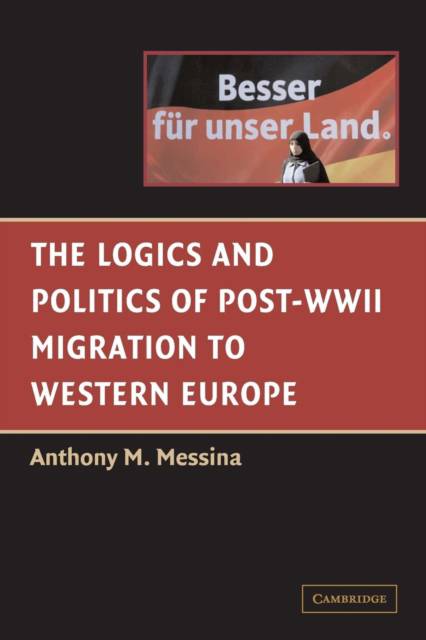
- Afhalen na 1 uur in een winkel met voorraad
- Gratis thuislevering in België vanaf € 30
- Ruim aanbod met 7 miljoen producten
- Afhalen na 1 uur in een winkel met voorraad
- Gratis thuislevering in België vanaf € 30
- Ruim aanbod met 7 miljoen producten
Zoeken
The Logics and Politics of Post-WWII Migration to Western Europe
Anthony M Messina
Paperback | Engels
€ 36,45
+ 72 punten
Omschrijving
Few phenomena have been more disruptive to West European politics and society than the accumulative experience of post-WWII immigration. Against this backdrop spring two questions: Why have the immigrant-receiving states historically permitted high levels of immigration? To what degree can the social and political fallout precipitated by immigration be politically managed? Utilizing evidence from a variety of sources, this study explores the links between immigration and the surge of popular support for anti-immigrant groups; its implications for state sovereignty; its elevation to the policy agenda of the European Union; and its domestic legacies. It argues that post-WWII migration is primarily an interest-driven phenomenon that has historically served the macroeconomic and political interests of the receiving countries. Moreover, it is the role of politics in adjudicating the claims presented by domestic economic actors, foreign policy commitments, and humanitarian norms that creates a permissive environment for significant migration to Western Europe.
Specificaties
Betrokkenen
- Auteur(s):
- Uitgeverij:
Inhoud
- Aantal bladzijden:
- 310
- Taal:
- Engels
Eigenschappen
- Productcode (EAN):
- 9780521528863
- Verschijningsdatum:
- 4/06/2007
- Uitvoering:
- Paperback
- Formaat:
- Trade paperback (VS)
- Afmetingen:
- 152 mm x 226 mm
- Gewicht:
- 430 g

Alleen bij Standaard Boekhandel
+ 72 punten op je klantenkaart van Standaard Boekhandel
Beoordelingen
We publiceren alleen reviews die voldoen aan de voorwaarden voor reviews. Bekijk onze voorwaarden voor reviews.







